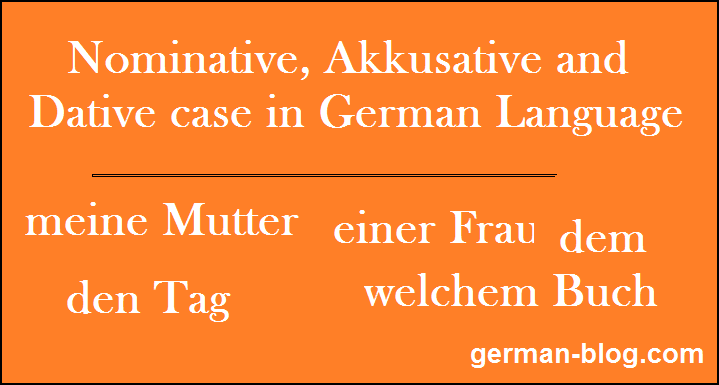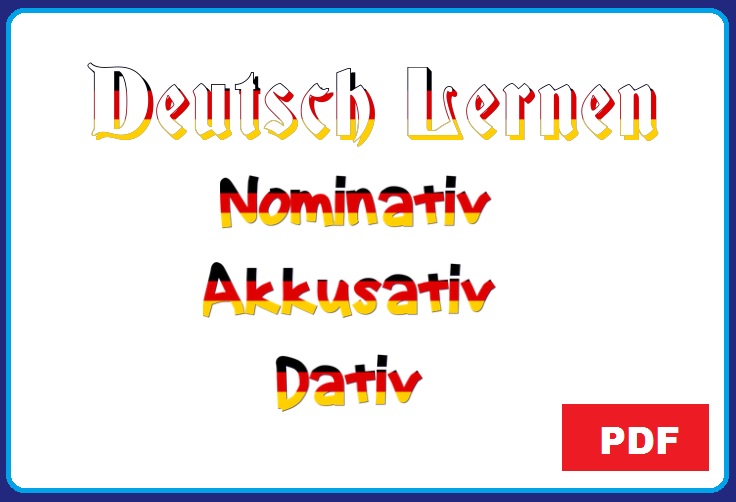

To ask “who” in German, you need to decided whether the “who” is the subject, the direct object, or the indirect object. It may help you to remember these changes with the mnemonic device “rese nese mr mn” - in other words, de r-di e-da s-di e, de n-di e-da s-di e, de m-de r-de m-de n. If you need reference to these, here's a table of the different endings and pronouns in the three cases:

Remember that not every sentence necessarily has a direct object and an indirect object: some have only one or the other, or none at all. Then look for a direct object (put in accusative) and indirect object (put in dative).

If none of the other conditions apply, then you need to determine which noun in the sentence is the subject, and put that in nominative. Is the verb a dative verb? If so, the object will be in the dative. (Next semester you will learn some other prepositions which aren't quite so easy.) Once you have the accusative and dative prepositions memorized, these are your friends when it comes to case - they tell you exactly what to do. Just make sure you know which prepositions take the accusative (dogfu) and which take the dative (Blue Danube Waltz). Is it a fixed expression? (such as Mir ist kalt, or Es tut mir Leid)ĭoes the noun follow either an accusative or a dative preposition? If so, this should be easy, since the preposition determines the case. So, when you're trying to decide which case to use, consider the following things: He’s in the house), it takes the dative case. For now, the most you need to know is that when ‘in’ is used with a stationary verb (e.g.
#German grammar nominative accusative dative genitive how to
Later this week you will be learning more about this preposition and how to use it correctly. the preposition “in” often uses the dative case.You'll just need to know these as fixed phrases. with some adjectives which describe a condition.We're thanking you = we're giving thanks to you. I'm helping you = I'm giving help to you. There's no direct translation that explains why these verbs take a dative object, it's just an idiosyncrasy of German - it's best just to memorize these verbs as requiring the dative, even though the following noun doesn't 'feel' like an indirect object. See your book for more details on each verb. after dative verbs: helfen, danken, gefallen, gehören, schmecken, passen.Ich fahre am Wochenende zu meiner Tante in Minnesota. Sie haben ein Geschenk von ihrem Vater bekommen.Īußer meiner Mutter spricht meine ganze Familie Deutsch. 239-240, for more detailed explanation of the meanings of each preposition. There are many possible translations of these prepositions, depending on exactly what the context of the sentence is. A noun immediately following these prepositions is ALWAYS in the dative case. after the dative prepositions: aus, außer, bei, mit, nach, seit, von, zu (memory aid: Blue Danube Waltz).In English, we don't distinguish the direct and indirect object in the forms of words instead, we often use "to" or "for" to mark these. Remember that not every sentence will have an indirect object - only some verbs allow an indirect object: to give (to), to bring (to), to tell (to), to buy (for), to send (to) are some examples of verbs that will almost always have an indirect object. If you ask yourself: “TO whom or FOR whom is this being done?”, the answer will be the indirect object, and in German it will need the dative case. It’s usually a person, although it doesn’t have to be. An indirect object is the beneficiary of whatever happens in a sentence. for the indirect object of a sentence.Jeden Morgen esse ich Brot zum Frühstück. We haven’t officially learned this yet, but it’s good to know. time expressions in a sentence are usually in accusative: jeden Tag, letzten Sommer, den ganzen Tag, diesen Abend, etc.If a noun follows these prepositions, it will ALWAYS be in the accusative! after the accusative prepositions and postpositions: durch, für, gegen, ohne, um (memory aid: dogfu), as well as the postpositions bis and entlang.Note that the very common expression "es gibt" (there is/are) requires that the noun be in the accusative case because it is grammatically a direct object. for the direct object of a sentence: who or what is being ?.for predicate nouns: when the main verb is sein or werden, use the nominative for both subject and predicate nouns.for the subject of a sentence: who or what is doing this?.Handout: Nominative, Accusative, and Dative: When to Use Them Handout: Nominative, Accusative, and Dative: When to Use Them BACK TO GRAMMAR WORKSHEETS


 0 kommentar(er)
0 kommentar(er)
